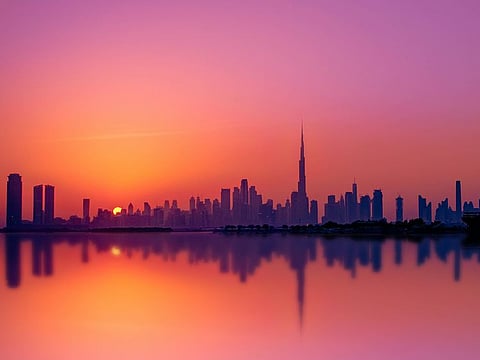Dubai luxury home prices still have some way to go before reaching 2014 peaks
It is only at the Palm that super-prime homes are listing above all-time highs

Dubai’s property market has been weathering many storms over the last two years. After cushioning the effects of the pandemic, the prime residential market has soared to new highs, thanks to initiatives undertaken by the government that helped restore confidence and prompted a flurry of market transactions.
Recently, the city has become somewhat of a hub for HNWIs thanks to changes in regulations, especially the visa reforms that have paved the way for the cash-rich to migrate and explore the endless opportunities Dubai presents.
The outlook of Dubai’s residential property market looked bleak when the pandemic brought the world economy to a standstill. However, the onset of Covid marked a major turning point for Dubai’s real estate sector – setting the stage for an explosive turnaround and marking the beginning of the city’s third residential market cycle.
The UAE has the highest number of fully vaccinated residents, and there was the re-opening of travel corridors after a strict lockdown. The Expo 2020 was truly a watershed moment for the city by reaffirming Dubai’s commitment to sustainable growth and technological transformation. The event attracted millions of people who experienced first-hand the deluge of exciting opportunities the city offers. It also served as a catalyst for real estate growth as both hotel occupancy and residential prices rose considerably.
Zooming past other communities
What’s interesting to note is despite what experts perceive as a sharp increase in prices, the residential market is still on average roughly 25 per cent below peak levels in 2014. However, villas in prime and super-prime neighbourhoods such as the Palm and Emirates Hills continue to attract buyers.
This is evidenced by the increase in prices, especially on the Palm, which recorded a growth of 38.6 per cent in the last 12 months. In fact, average villa prices on the Palm today are higher than their 2014 peak.
The trend that we’re seeing now is the demand for uber-luxury, custom-built mansions and villas. For example, mansions such as the XLV Residence in Emirates Hills, which is on the market for a staggering Dh225 million, are piquing the interest of the wealthy from all over the globe. Similarly, demand for offplan projects is at an all-time high. Projects such as Sea Mirror, Six Senses and Ava by the Dorchester Collection have been on the radar of investors, local and international.
Amidst the pandemic, Dubai has cemented its position as the city that continues to attract the world’s elite. In a recent forecast by the Henley Global Citizens Report, Dubai will dethrone the US in attracting the largest net inflows of millionaires globally by the end of 2022.
Other factors that pull wealthy investors and families to Dubai is the incomparable infrastructure with low crime rates, competitive tax rates, world-beating attractions, and myriad business opportunities. With uncertainty looming over the global economy, the world’s wealthy are continuing to find an investment haven in Dubai.
Sign up for the Daily Briefing
Get the latest news and updates straight to your inbox








